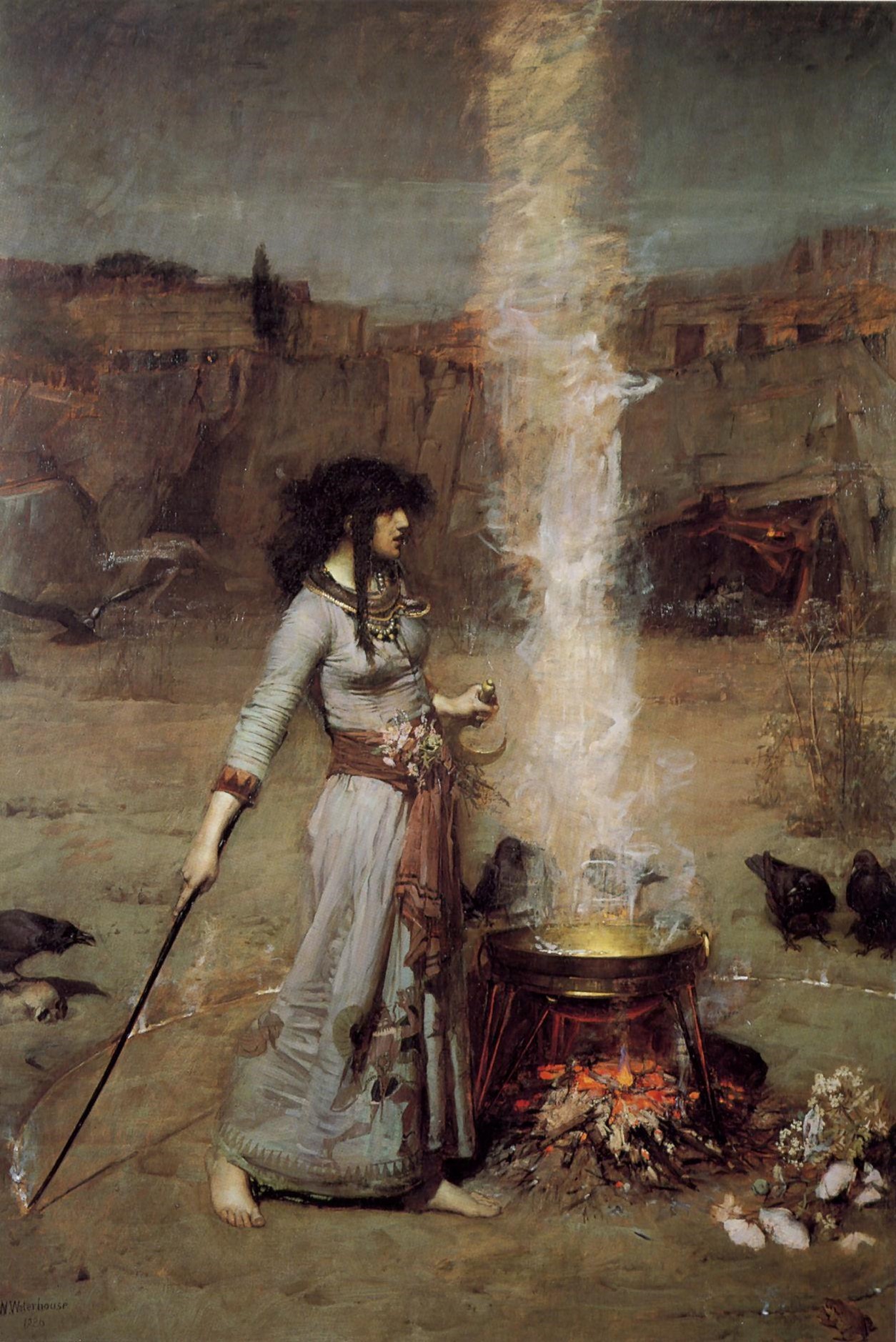Thank you, Emir, for such an intriguing question.
I have a bold (many would say foolish) answer for you. I want to suggest that your question is even more correct than you perhaps realise. Western philosophy is, I think, obviously concerned with the occult, at least insomuch as the occult is concerned with things ‘hidden’, and philosophy seeks the truth, which is also hidden from us. But this is a trite point, and I think you will accuse me of playing semantics with the word ‘occult’ to make philosophy appear a lover of things most of its contemporary practitioners avoid. You would be right.
What you want to know is whether philosophy has been, and perhaps still is, a subject that deals with the esoteric, that is to say, a kind of secret supernaturalism which involves belief in irrational/a-rational things, usually coupled with some form of elitist mystical practice. How could this possibly be when philosophy itself is meant to be the conquest of superstition by reason? How many of your philosophy lecturers struck you as secret priests or priestesses inducting you into some hidden truth, rather than as exhausted 40 something-year-olds half-heartly peddling the dubious intellectual fruits of 20th Century French Philosophy, or leading you, dead-eyed and hollow-hearted, through cat-on-the-mat logic exercises?
And yet the answer is clear for anyone who has studied philosophy’s foundations in the pre-Socratics. Many of those long-dead and half-forgotten Greek sages such as Pythagoras and Empedocles not only broke ground in mathematics, reasoned argument, and the inductive sciences; but they also used reason in tandem with meditative practices as a means to reveal the hidden unity of the divine cosmos and the human being. This was the whole point – to be healed of the merely human perspective, and so be able to face the trials that the latter imposes. There is of course too much to cover here in these few unsatisfactory words, but we can at least illuminate the issue with reference to one of these curious figures: Parmenides of Elea.
For the academy today, Parmenides is the father of deductive logic. A man working in a time of superstition and the irrational, whose genius insight into the power of deductive reasoning opened the door to both formal logical rules and to the establishing of reason as the path to truth. The only problem is that this is not what Parmenides saw himself as doing. Nor did he consider himself the author of the doctrine he promulgated. He does not say he invented it; rather he specifically states that he received it, as can be seen very clearly in the opening parts of On Nature. Here he writes of being taken in a chariot by the daughters of the sun to the ‘house of night’ where an unnamed divine female figure (likely Persephone) greets him and reveals to him the way of truth which he must then take back to the world of the living.
So far, so mythological, and the standard academic response to this is that Parmenides is simply giving his extraordinary human insight into the power of deduction the correct kind of socio-cultural window-dressing to make it both intelligible and acceptable to his superstitious contemporaries. There is another possibility though. The genesis of his poem relates what we can today understand as the record of a profoundly altered state of consciousness. It has all the hallmarks of prophetic or shamanic experience: whirling wheels, high-pitched sounds, a sense of transportation, meeting non-human entities and the feeling of being very young in their presence, the reception of knowledge, and the revelation that waking life is not what it appears to be. This is not window-dressing at all. It is a shock, is it not, to our rational modern mind, that Parmenides was being serious?
On this view, reason itself was a fire gifted by Persephone, not stolen by Prometheus, and it was designed to lead humans from the alarums worries of this world, from the shadows on the wall, to a proper understanding of our nature, role and place within the alchemical body of God, which we moderns, through the aperture of 3-dimensional vision, happen to call the universe. Logic was given, according to Parmenides, to lead us home via the deductive realisation that ‘Being’ is uncreated, unchanging, whole; and at that point, logic’s job is done. The echo of this, however distorted, however fragmentary, is found throughout the history of Western Philosophy: Empedocles’ consciousness-shifting breathing exercises, Socrates’ daemon, the guided meditations of the Stoics, Plotinus’ ‘One’, Spinoza’s rational Panentheism, Hegel’s Geist, and, more latterly, Severino’s return to Parmenides, and Kingsley’s re-appraisal of the pre-Socratics. It can even be seen as resurgent in recent debates on pan-psychism and the irreducibility of consciousness that have surfaced over the last decade.
So, in closing (although this is really an opening), we see that Philosophy itself is not what it appears to be. Properly understood, it is an esoteric practice with exoteric results; but one that has forgotten itself. In the Anglosphere it has calcified into an arid exercise in logic chopping; and in its Continental expression it has devolved into a nihilistic relativism with a paradoxical monomania for uncovering oppression (as if the latter matters when all is meaningless anyway). The possibility of renewal is, however, always present and always waiting.
What do you think? Is philosophy like the occult? Let us know in the comments.
And, as always, if you have a question for the Armchair Philosophers, don’t hesitate to get in touch. You could send us a message or fill in this form.
Be sure to check out our podcast!
If you like what we do, you can support us by buying us a coffee!
Image: Magic Circle, by John William Waterhouse (1886)
I studied at the University of Lancaster (1999-2003) where I gained a BA Hons in Religious Studies & Philosophy, and a MA in Religious Studies. I gained my PhD in Religions & Theology at the University of Manchester (2004-2010) and the thesis was published by Gorgias Press as Antitheodicy, Atheodicy and Jewish Mysticism in Holocaust Theology (2012). I lectured for four years at the University of Manchester in the Department of Religions & Theology (2013-17) where I taught the History of Western Philosophy among other courses. I particularly revere the thought of Parmenides, Descartes, Spinoza, Kant, and Peter Kingsley.

